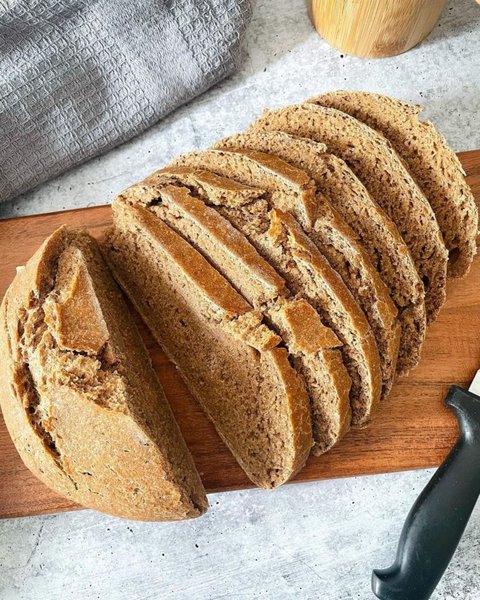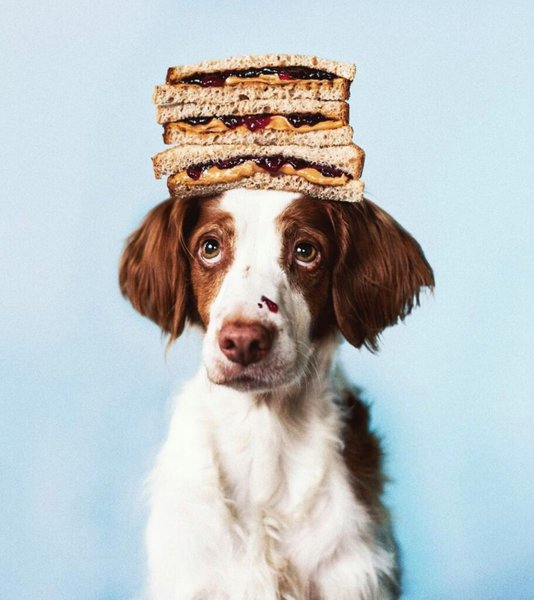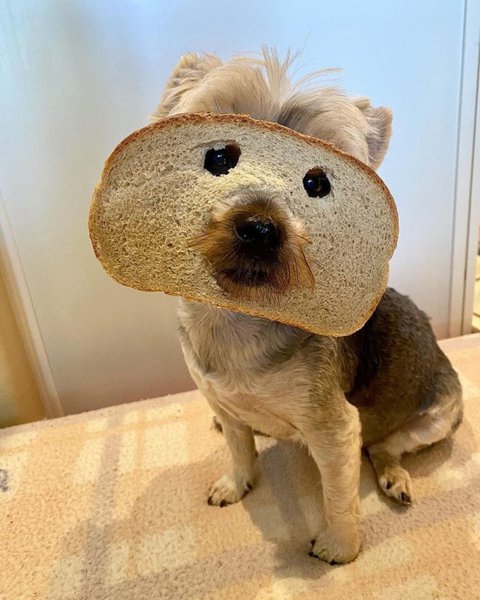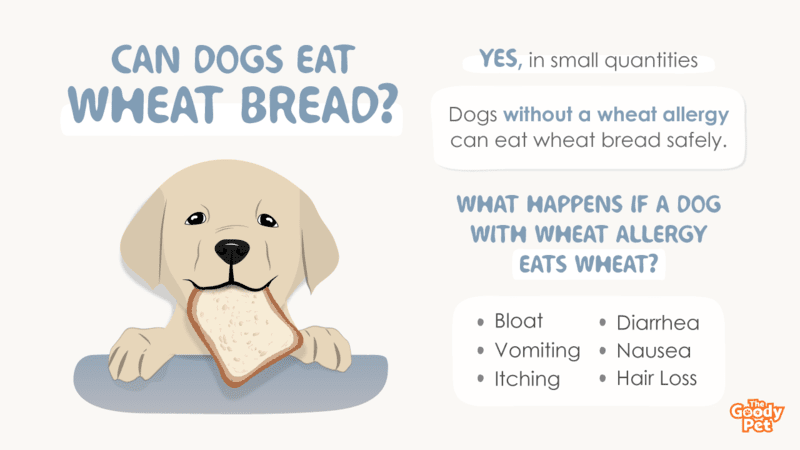There are many misunderstandings and uncertainties when it comes to dogs eating food containing wheat. For instance, many dog owners are often unsure if their dogs are allowed to eat food containing wheat like wheat bread.
Dogs can eat wheat bread, especially those without a wheat allergy. Feeding your furry friend with wheat is not dangerous. The problem only arises when it is fed wheat in large quantities, resulting in stomach upsets and intestinal complications.
Other clinical complications associated with eating wheat in dogs may include diarrhea, bloating, nausea, itching, and hair loss.
In this article, I will let you know whether dogs can eat wheat every day, and why dogs love wheat bread. You will also see how much wheat is safe for your pooch and how much is recommended.
But before then, let’s see what happens when your pooch eats wheat.
What Happens If A Dog Eats Wheat?
There are different ways your dog’s digestive system can process wheat, and what happens thereafter depends on their allergy response to wheat. If your dear buddy is allergic to wheat, it will most likely bloat, vomit, have diarrhea, or itch around the face, ears, and legs.
Otherwise, if your furry friend is just fine with wheat and has no allergy to it, there will be no manifestation of problems.
Nevertheless, your furry friend can still manifest problems despite not being allergic to wheat. This is because the amount of wheat consumed also has an effect. If the amount of wheat eaten from a meal is large, bloating will very likely occur in your pooch.
How Safe Is Wheat For My Dog?
Wheat is safe for almost all dogs if it is fed in small quantities, in moderation, and on occasions.
Having your pooch eat wheat occasionally is perfectly okay, as it can be treated as a source of protein, essential fatty acids, and fiber content for your pooch.
Will Gluten In Wheat Affect My Dog?
No, gluten in wheat will not affect your dog if your dog is not allergic to gluten. When dogs consume food containing gluten, like wheat, in small quantities and on certain occasions, they are safe.
Wheat contains gluten, and due to its negative impact on the human body in the form of celiac disease, a lot of people exercise caution when buying food rich in grain content.
In both dogs and humans, consuming foods containing gluten can result in stomach and intestinal distress, especially for those who are gluten intolerant. So it is understandable that dog owners will want to protect their dogs from any gluten-derived complications.

How Frequent Is Gluten Intolerance In Dogs?
Although it occurs, gluten intolerance is rare in dogs. The major complications only arise from consuming a large amount of food containing gluten, like wheat bread.
However, it is still important to know whether your pooch is allergic to wheat or not.
To know if your canine buddy is allergic to wheat or not, you should perform a test, and have your pooch eat wheat in small amounts for 7 days. You should wait and check for any signs of reactions, like changes in physical appearance and behavior. Make sure to record your canine buddy on video throughout this period.
When it is not fed wheat, you should continue to record your pooch on video for another 7 days and compare the two videos to check for changes in your pooch’s behavior.
If your pooch is found to be pooping more often, feels drowsy, bloats, has nausea, or experiences pain, you should withdraw wheat from its diet. More so, if your pooch itches its ears and skin more than usual, this is another sign of a wheat allergy.
Can Bread Upset A Dog’s Stomach?
Bread does not upset your doggie’s stomach if taken in small quantities and moderately. It is only when bread is taken in large quantities that it will upset your dog’s stomach.
Don’t allow your pooch to eat a full loaf of bread. Whenever you give it bread, it should be in small amounts.
Bread is not part of a canine’s natural diet. And when they do have bread, it should be fed as a treat.
Can Dogs Eat Wheat Bread Every Day?
No, do not give your pooch wheat bread every day. It is only recommended that you give your pooch bread occasionally as a treat.
Also, wheat bread is not a food staple in a dog’s diet, and it has very little nutritional value to a dog. Feeding your furry friend wheat bread every day will cause the accumulation of many calories, and it is a form of prolonged exposure to wheat.
Dogs manifest signs of allergy after prolonged exposure to wheat food, and this has adverse effects. The adverse effects of eating bread every day are obesity, diarrhea, dehydration, and at times, constipation may result.
In case you run out of food options for your pooch, there are alternative foods that are safe for dogs. Foods such as corn, pumpkins, eggs, salmon, and coconuts are alternatives for your pooch. However, they should also be fed on occasion and in moderate amounts.
There are also commercially made foods available and safe for dogs to eat every day. They provide your furry friend with a healthy diet that is complete with all essential nutrients.
One such food we approve of is Pet Plate. It is made for everyday pet nutrition and contains proteins, essential multivitamins, and the right amount of calories for the optimum health of your furry friend.
How Much Wheat Bread Is Okay For My Dog?
Dogs should not eat bread that is more than 5% of a regular meal in terms of portions. Always ensure that they don’t eat an excess of it.
Anything excess is when your pooch consumes a full loaf of bread. Most times, when dogs consume such a large size of bread, it results in symptoms of an upset stomach.
Although consuming much wheat bread may be filling, it has low nutritional value to dogs. For this reason, you should only feed your dog wheat bread in small amounts, as specified previously.
How Safe Is Toast For My Dog?
Toast is made by treating wheat bread with high heat to remove the moisture content before serving. This is not much different from wheat bread, in terms of its content and safety. Hence, the consumption of toast should not affect your pooch in any way different from consuming wheat bread.
Preparing a toast without adding raisins, chocolate, or high-fat ingredients is okay and ideal for your pooch to eat. But always remember to feed them toast or wheat bread in small amounts and on very few occasions.
Does Wheat Bread Help A Dog With Diarrhea?
Unfortunately, wheat bread is not a good remedy for settling your dog’s stomach, because it contains a lot of fiber.
Nevertheless, as toast is dry, a small amount will be helpful to a dog in absorbing fluids from the stomach and intestines during diarrhea. So, we suggest using a toast made of plain white bread that is low in fiber. A better alternative to toast is plain white rice or pumpkin for diarrhea in dogs.

Why Do Dogs Love Wheat Bread?
The fact that dogs love chewing things explains why they love wheat bread.
They can chew on almost anything they can get their mouth on. For example, a dog will chew real bones, bone toys, and even things with no nutritional value, like shoes or pillows.
Your dog may also love to chew wheat bread so much that it may even go on top of the counter to steal some, as long as it is allowed to eat bread without restraint. So, you should ensure that your bread is locked somewhere without their reach.
Why Does My Dog Love Chewing Wheat Bread?
The reasons why your canine buddy loves chewing wheat bread are that it derives nutritional benefits and that it enjoys the taste of wheat bread.
Wheat bread mainly contains carbohydrates that dogs will seek for energy. Occasionally, if your dog catches you eating wheat bread, it naturally thinks that it is tasty and will ‘beg’ to have one bite.
Another reason is that your dog has formed the habit of chewing things when they are young, and chewing is a way to relieve stress.
For dogs, chewing is a habit formed over the years. It is a way to relieve teething pain and strengthen teeth while growing. It is also another way to get nutrients, for instance, calcium, when they chew bones.






